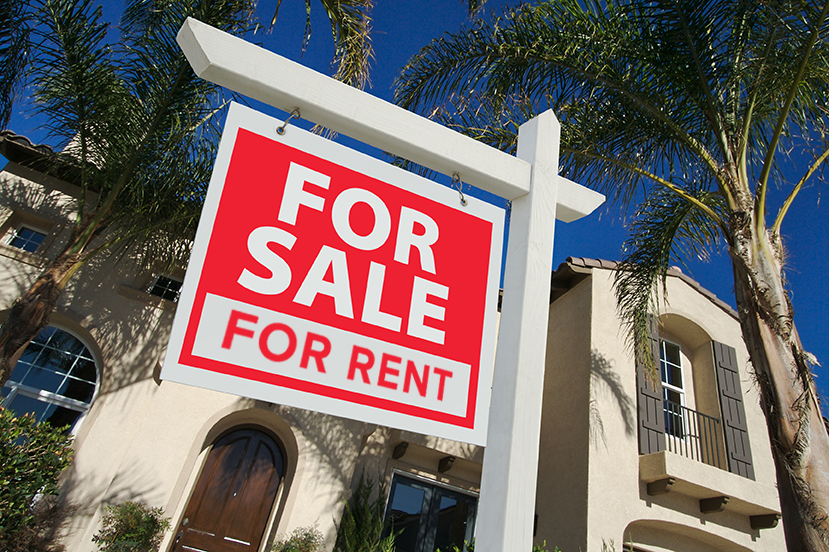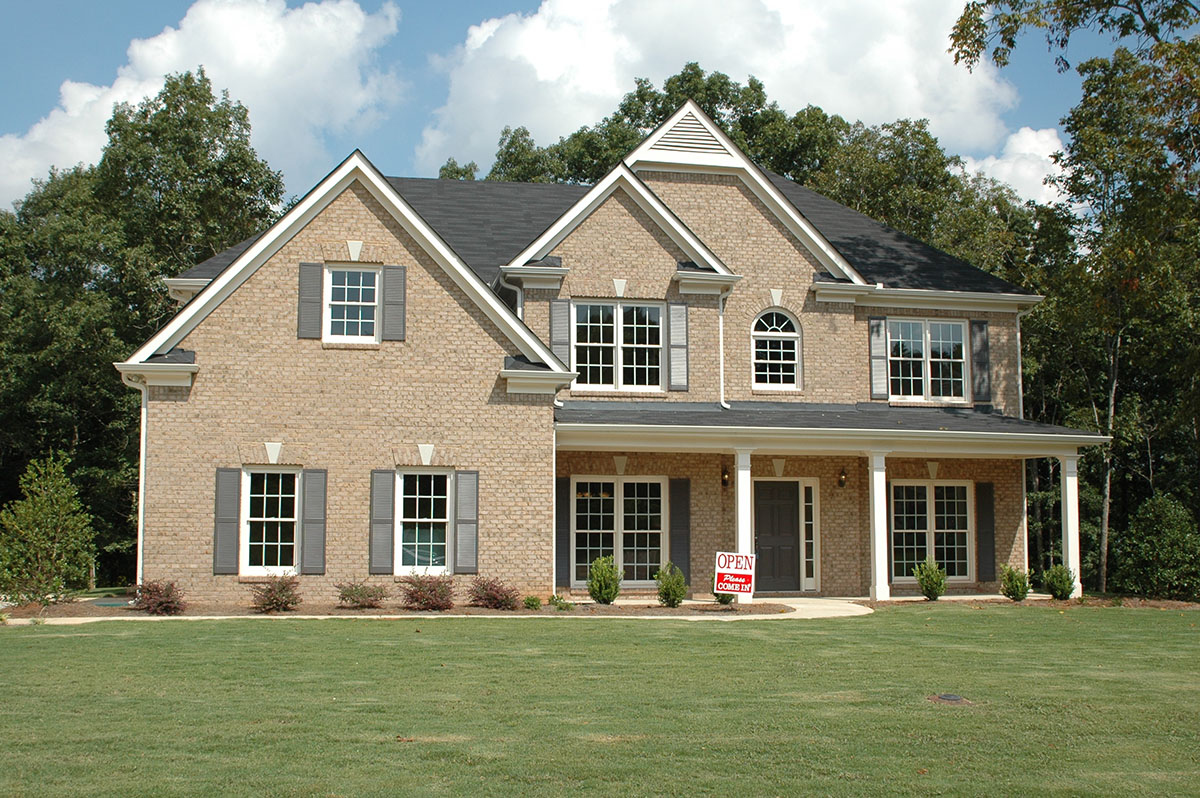WHAT A HOME INSPECTION SHOULD COVER

WHAT A HOME INSPECTION SHOULD COVER
Home inspections will vary depending on the type of property you are purchasing. A large historic home, for example, will require a more specialized inspection than a small condominium. However, the following are the basic elements that a home inspector will check. You can also use this list to help you evaluate properties you might purchase.
For more information, try the virtual home inspection at www.ASHI.org, the Web site of the American Society of Home Inspectors.
Structure: A home’s skeleton impacts how the property stands up to weather, gravity, and the earth. Structural components, including the foundation and the framing, should be inspected.
Exterior: The inspector should look at sidewalks, driveways, steps, windows, and doors. A home’s siding, trim, and surface drainage also are part of an exterior inspection.
Doors and windows
Siding (brick, stone, stucco, vinyl, wood, etc.)
Driveways/sidewalks
Attached porches, decks, and balconies
Roofing: A well-maintained roof protects you from rain, snow, and other forces of nature. Take note of the roof’s age, conditions of flashing, roof draining systems (pooling water), buckled shingles, loose gutters and downspouts, skylight, and chimneys.
Plumbing: Thoroughly examine the water supply and drainage systems, water heating equipment, and fuel storage systems. Drainage pumps and sump pumps also fall under this category. Poor water pressure, banging pipes, rust spots, or corrosion can indicate problems.
Electrical: Safe electrical wiring is essential. Look for the condition of service entrance wires, service panels, breakers and fuses, and disconnects. Also take note of the number of outlets in each room.
Heating: The home’s heating system, vent system, flues, and chimneys should be inspected. Look for age of water heater, whether the size is adequate for the house, speed of recovery, and energy rating.
Air Conditioning: Your inspector should describe your home cooling system, its energy source, and inspect the central and through-wall cooling equipment. Consider the age and energy rating of the system.
Interiors: An inspection of the inside of the home can reveal plumbing leaks, insect damage, rot, construction defects, and other issues. An inspector should take a close look at:
Walls, ceilings and floors
Steps, stairways, and railings
Countertops and cabinets
Garage doors and garage door systems
Ventilation/insulation: To prevent energy loss, check for adequate insulation and ventilation in the attic and in unfinished areas such as crawlspaces. Also look for proper, secured insulation in walls. Insulation should be appropriate for the climate. Excess moisture in the home can lead to mold and water damage.
Fireplaces: They’re charming, but they could be dangerous if not properly installed. Inspectors should examine the system, including the vent and flue, and describe solid fuel burning appliances.
Source: American Society of Home Inspectors (www.AHSI.org)
The data relating to real estate for sale on this site comes in part from the Broker Reciprocity Program of Georgia MLS. Real estate listings held by brokerage firms other than Results Realty Services are marked with the Broker Reciprocity logo and detailed information about them includes the name of the listing brokers.
Listing broker has attempted to offer accurate data, but buyers are advised to confirm all items.
Copyright 2019 Georgia MLS. All rights reserved.
TIPS FOR LOWERING HOMEOWNER’S INSURANCE COSTS

TIPS FOR LOWERING HOMEOWNER’S INSURANCE COSTS
1. Review the Comprehensive Loss Underwriting Exchange (CLUE) report on the property you’re interested in buying. CLUE reports detail the property’s claims history for the most recent five years, which insurers may use to deny coverage. Make the sale contingent on a home inspection to ensure that problems identified in the CLUE report have been repaired.
2. Seek insurance coverage as soon as your offer is approved. You must obtain insurance to buy. And you don’t want to be told at closing that the insurer has denied your coverage.
3. Maintain good credit. Insurers often use credit-based insurance scores to determine premiums.
4. Buy your home owners and auto policies from the same company and you’ll usually qualify for savings. But make sure the discount really yields the lowest price.
5. Raise your deductible. If you can afford to pay more toward a loss that occurs, your premiums will be lower. Avoid making claims under $1,000.
6. Ask about other discounts. For example, retirees who tend to be home more than full-time workers may qualify for a discount on theft insurance. You also may be able to obtain discounts for having smoke detectors, a burglar alarm, or dead-bolt locks.
7. Seek group discounts. If you belong to any groups, such as associations or alumni organizations, they may have deals on insurance coverage.
8. Review your policy limits and the value of your home and possessions annually. Some items depreciate and may not need as much coverage.
9. Investigate a government-backed insurance plan. In some high-risk areas, federal or state government may back plans to lower rates. Ask your agent.
10. Be sure you insure your house for the correct amount. Remember, you’re covering replacement cost, not market value.
The data relating to real estate for sale on this site comes in part from the Broker Reciprocity Program of Georgia MLS. Real estate listings held by brokerage firms other than Results Realty Services are marked with the Broker Reciprocity logo and detailed information about them includes the name of the listing brokers.
Listing broker has attempted to offer accurate data, but buyers are advised to confirm all items.
Copyright 2019 Georgia MLS. All rights reserved.
TIPS FOR FINDING THE PERFECT NEIGHBORHOOD

TIPS FOR FINDING THE PERFECT NEIGHBORHOOD
Your neighborhood has a big impact on your lifestyle. Follow these steps to find the perfect community to call home.
Is it close to your favorite spots? Make a list of the activities — movies, health club, church, etc. — you engage in regularly and stores you visit frequently. See how far you would have to travel from each neighborhood you’re considering to engage in your most common activities.
Check out the school district. This is especially important if you have children, but it also can affect resale value. The Department of Education in your town can probably provide information on test scores, class size, percentage of students who attend college, and special enrichment programs. If you have school-age children, visit schools in the neighborhoods you’re considering. Also, check out www.schoolmatters.com.
Find out if the neighborhood is safe. Ask the police department for neighborhood crime statistics. Consider not only the number of crimes but also the type — such as burglaries or armed robberies — and the trend of increasing or decreasing crime. Also, is crime centered in only one part of the neighborhood, such as near a retail area?
Determine if the neighborhood is economically stable. Check with your local city economic development office to see if income and property values in the neighborhood are stable or rising. What is the percentage of homes to apartments? Apartments don’t necessarily diminish value, but do mean a more transient population. Do you see vacant businesses or homes that have been for sale for months?
See if you’ll make money. Ask a local REALTOR® or call the local REALTOR® association to get information about price appreciation in the neighborhood. Although past performance is no guarantee of future results, this information may give you a sense of how good of an investment your home will be. A REALTOR® or the government planning agency also may be able to tell you about planned developments or other changes in the neighborhood — like a new school or highway — that might affect value.
Make personal observations. Once you’ve narrowed your focus to two or three neighborhoods, go there and walk around. Are homes tidy and well maintained? Are streets quiet? How does it feel? Pick a warm day if you can and chat with people working or playing outside.
The data relating to real estate for sale on this site comes in part from the Broker Reciprocity Program of Georgia MLS. Real estate listings held by brokerage firms other than Results Realty Services are marked with the Broker Reciprocity logo and detailed information about them includes the name of the listing brokers.
Listing broker has attempted to offer accurate data, but buyers are advised to confirm all items.
Copyright 2019 Georgia MLS. All rights reserved.
TIPS FOR BUYING IN A TIGHT MARKET

TIPS FOR BUYING IN A TIGHT MARKET
Increase your chances of getting your dream house in a competitive housing market, and lower your chances of losing out to another buyer.
1. Get prequalified for a mortgage. You’ll be able to make a firm commitment to buy and your offer will be more desirable to the seller.
2. Stay in close contact with your real estate agent to find out about the newest listings. Be ready to see a house as soon as it goes on the market — if it’s a great home, it will go fast.
3. Scout out new listings yourself. Look at Web sites such as REALTOR.com, browse your local newspaper’s real estate section, and drive through the neighborhood to spot For Sale signs. If you see a home you like, write down the address and the name of the listing agent. Your real estate agent will schedule a showing.
4. Be ready to make a decision. Spend a lot of time in advance deciding what you must have in a home so you won’t be unsure when you have the chance to make an offer.
5. Bid competitively. You may not want to start out offering the absolute highest price you can afford, but don’t go too low to get a deal. In a tight market, you’ll lose out.
6. Keep contingencies to a minimum. Restrictions such as needing to sell your home before you move or wanting to delay the closing until a certain date can make your offer unappealing. In a tight market, you’ll probably be able to sell your house rapidly. Or talk to your lender about getting a bridge loan to cover both mortgages for a short period.
7. Don’t get caught in a buying frenzy. Just because there’s competition doesn’t mean you should just buy it. And even though you want to make your offer attractive, don’t neglect inspections that help ensure that your house is sound.
The data relating to real estate for sale on this site comes in part from the Broker Reciprocity Program of Georgia MLS. Real estate listings held by brokerage firms other than Results Realty Services are marked with the Broker Reciprocity logo and detailed information about them includes the name of the listing brokers.
Listing broker has attempted to offer accurate data, but buyers are advised to confirm all items.
Copyright 2019 Georgia MLS. All rights reserved.
TAX BENEFITS OF HOME OWNERSHIP

TAX BENEFITS OF HOME OWNERSHIP
The tax deductions you’re eligible to take for mortgage interest and property taxes greatly increase the financial benefits of home ownership. Here’s how it works.
Assume:
$9,877 = Mortgage interest paid (a loan of $150,000 for 30 years, at 7 percent, using year-five interest)
$2,700 = Property taxes (at 1.5 percent on $180,000 assessed value)
_______
$12,577 = Total deduction
Then, multiply your total deduction by your tax rate.
For example, at a 28 percent tax rate: 12,577 x 0.28 = $3,521.56
$3,521.56 = Amount you have lowered your federal income tax (at 28 percent tax rate)
Note: Mortgage interest may not be deductible on loans over $1.1 million. In addition, deductions are decreased when total income reaches a certain level.
The data relating to real estate for sale on this site comes in part from the Broker Reciprocity Program of Georgia MLS. Real estate listings held by brokerage firms other than Results Realty Services are marked with the Broker Reciprocity logo and detailed information about them includes the name of the listing brokers.
Listing broker has attempted to offer accurate data, but buyers are advised to confirm all items.
Copyright 2019 Georgia MLS. All rights reserved.
TAKE THE STRESS OUT OF HOMEBUYING

TAKE THE STRESS OUT OF HOMEBUYING
Buying a home should be fun, not stressful. As you look for your dream home, keep in mind these tips for making the process as peaceful as possible.
1. Find a real estate agent who you connect with. Home buying is not only a big financial commitment, but also an emotional one. It’s critical that the REALTOR® you chose is both highly skilled and a good fit with your personality.
2. Remember, there’s no “right” time to buy, just as there’s no perfect time to sell. If you find a home now, don’t try to second-guess interest rates or the housing market by waiting longer — you risk losing out on the home of your dreams. The housing market usually doesn’t change fast enough to make that much difference in price, and a good home won’t stay on the market long.
3. Don’t ask for too many opinions. It’s natural to want reassurance for such a big decision, but too many ideas from too many people will make it much harder to make a decision. Focus on the wants and needs of your immediate family — the people who will be living in the home.
4. Accept that no house is ever perfect. If it’s in the right location, the yard may be a bit smaller than you had hoped. The kitchen may be perfect, but the roof needs repair. Make a list of your top priorities and focus in on things that are most important to you. Let the minor ones go.
5. Don’t try to be a killer negotiator. Negotiation is definitely a part of the real estate process, but trying to “win” by getting an extra-low price or by refusing to budge on your offer may cost you the home you love. Negotiation is give and take.
6. Remember your home doesn’t exist in a vacuum. Don’t get so caught up in the physical aspects of the house itself — room size, kitchen, etc. — that you forget about important issues as noise level, location to amenities, and other aspects that also have a big impact on your quality of life.
7. Plan ahead. Don’t wait until you’ve found a home and made an offer to get approved for a mortgage, investigate home insurance, and consider a schedule for moving. Presenting an offer contingent on a lot of unresolved issues will make your bid much less attractive to sellers.
8. Factor in maintenance and repair costs in your post-home buying budget. Even if you buy a new home, there will be costs. Don’t leave yourself short and let your home deteriorate.
9. Accept that a little buyer’s remorse is inevitable and will probably pass. Buying a home, especially for the first time, is a big financial commitment. But it also yields big benefits. Don’t lose sight of why you wanted to buy a home and what made you fall in love with the property you purchased.
10. Choose a home first because you love it; then think about appreciation. While U.S. homes have appreciated an average of 5.4 percent annually over from 1998 to 2002, a home’s most important role is to serve as a comfortable, safe place to live.
The data relating to real estate for sale on this site comes in part from the Broker Reciprocity Program of Georgia MLS. Real estate listings held by brokerage firms other than Results Realty Services are marked with the Broker Reciprocity logo and detailed information about them includes the name of the listing brokers.
Listing broker has attempted to offer accurate data, but buyers are advised to confirm all items.
Copyright 2019 Georgia MLS. All rights reserved.
SPECIALTY MORTGAGES: RISKS AND REWARDS

SPECIALTY MORTGAGES: RISKS AND REWARDS
In high-priced housing markets, it can be difficult to afford a home. That’s why a growing number of home buyers are forgoing traditional fixed-rate mortgages and standard adjustablerate mortgages and instead opting for a specialty mortgage that lets them “stretch” their income so they can qualify for a larger loan.
But before you choose one of these mortgages, make sure you understand the risks and how they work.
Specialty mortgages often begin with a low introductory interest rate or payment plan — a “teaser”— but the monthly mortgage payments are likely to increase a lot in the future. Some are “low documentation” mortgages that come with easier standards for qualifying, but also higher interest rates or higher fees. Some lenders will loan you 100 percent or more of the home’s value, but these mortgages can present a big financial risk if the value of the house drops.
Specialty Mortgages Can:
Pose a greater risk that you won’t be able to afford the mortgage payment in the future, compared to fixed rate mortgages and traditional adjustable rate mortgages. Have monthly payments that increase by as much as 50 percent or more when the introductory period ends. Cause your loan balance (the amount you still owe) to get larger each month instead of smaller.
Common Types of Specialty Mortgages:
Interest-Only Mortgages: Your monthly mortgage payment only covers the interest you owe on the loan for the first 5 to 10 years of the loan, and you pay nothing to reduce the total amount you borrowed (this is called the “principal”). After the interest-only period, you start paying higher monthly payments that cover both the interest and principal that must be repaid over the remaining term of the loan.
Negative Amortization Mortgages: Your monthly payment is less than the amount of interest you owe on the loan. The unpaid interest gets added to the loan’s principal amount, causing the total amount you owe to increase each month instead of getting smaller.
Option Payment ARM Mortgages: You have the option to make different types of monthly payments with this mortgage. For example, you may make a minimum payment that is less than the amount needed to cover the interest and increases the total amount of your loan; an interest-only payment, or payments calculated to pay off the loan over either 30 years or 15 years.
40-Year Mortgages: You pay off your loan over 40 years, instead of the usual 30 years. While this reduces your monthly payment and helps you qualify to buy a home, you pay off the balance of your loan much more slowly and end up paying much more interest.
Questions to Consider Before Choosing a Specialty Mortgage:
How much can my monthly payments increase and how soon can these increases happen? Do I expect my income to increase or do I expect to move before my payments go up? Will I be able to afford the mortgage when the payments increase? Am I paying down my loan balance each month, or is it staying the same or even increasing? Will I have to pay a penalty if I refinance my mortgage or sell my house? What is my goal in buying this property? Am I considering a riskier mortgage to buy a more expensive house than I can realistically afford?
Be sure you work with a REALTOR® and lender who can discuss different options and address your questions and concerns!
Learn about the NATIONAL ASSOCIATION OF REALTORS® Housing Opportunity Program at www.REALTORS.org/housingopportunity. For more information on predatory mortgage lending practices, visit the Center for Responsible Lending at www.responsiblelending.org.
The data relating to real estate for sale on this site comes in part from the Broker Reciprocity Program of Georgia MLS. Real estate listings held by brokerage firms other than Results Realty Services are marked with the Broker Reciprocity logo and detailed information about them includes the name of the listing brokers.
Listing broker has attempted to offer accurate data, but buyers are advised to confirm all items.
Copyright 2019 Georgia MLS. All rights reserved.
Should You Buy During the Holidays?

12/09/2021
Here are three reasons why it’s a great idea to buy during the holidays.
Looking to buy a home? Search all homes for sale
Looking to sell your home? Find out your home’s value
We often get asked whether people should buy a home at the end of the year during the holidays or wait until the new year. Right now may be the perfect opportunity to find the right home for yourself and your family. Here are a few reasons why:
1. Less competition. Many people are of the mindset that the holidays are a bad time to buy, so you’ll usually find fewer people to compete against for houses.
2. Better pricing. Sellers whose properties have been sitting on the market for a while might need to sell now that it’s the end of the year and lower their prices, giving you a great opportunity.
Right now may be the perfect opportunity to find the right home.
”
3. Low interest rates. This is the main reason you should take advantage of the current real estate market. Interest rates are amazingly low, and if you can lock one in for 30 years, you’ll be in an excellent position moving forward.
Remember, It doesn’t hurt to get out there and look around, but it could hurt if you don’t and someone else snaps up the home that could have been perfect for you. If you’d like to get out there and see if we can find your dream home or have any questions, give us a call or send an email. We would love to help you.
QUESTIONS TO ASK WHEN CHOOSING A REALTOR®

QUESTIONS TO ASK WHEN CHOOSING A REALTOR®
1. Make sure you choose a REALTOR® who will provide top-notch service and meet your unique needs. 1. How long have you been in residential real estate sales? Is it your full-time job? While experience is no guarantee of skill, real estate — like many other professions — is mostly learned on the job.
2. What designations do you hold? Designations such as GRI and CRS® — which require that agents take additional, specialized real estate training — are held by only about one-quarter of real estate practitioners.
3. How many homes did you and your real estate brokerage sell last year? By asking this question, you’ll get a good idea of how much experience the practitioner has.
4. How many days did it take you to sell the average home? How did that compare to the overall market? The REALTOR® you interview should have these facts on hand, and be able to present market statistics from the local MLS to provide a comparison.
5. How close to the initial asking prices of the homes you sold were the final sale prices? This is one indication of how skilled the REALTOR® is at pricing homes and marketing to suitable buyers. Of course, other factors also may be at play, including an exceptionally hot or cool real estate market.
6. What types of specific marketing systems and approaches will you use to sell my home? You don’t want someone who’s going to put a For Sale sign in the yard and hope for the best. Look for someone who has aggressive and innovative approaches, and knows how to market your property competitively on the Internet. Buyers today want information fast, so it’s important that your REALTOR® is responsive.
7. Will you represent me exclusively, or will you represent both the buyer and the seller in the transaction? While it’s usually legal to represent both parties in a transaction, it’s important to understand where the practitioner’s obligations lie. Your REALTOR® should explain his or her agency relationship to you and describe the rights of each party.
8. Can you recommend service providers who can help me obtain a mortgage, make home repairs, and help with other things I need done? Because REALTORS® are immersed in the industry, they’re wonderful resources as you seek lenders, home improvement companies, and other home service providers. Practitioners should generally recommend more than one provider and let you know if they have any special relationship with or receive compensation from any of the providers.
9. What type of support and supervision does your brokerage office provide to you? Having resources such as in-house support staff, access to a real estate attorney, and assistance with technology can help an agent sell your home.
10. What’s your business philosophy? While there’s no right answer to this question, the response will help you assess what’s important to the agent and determine how closely the agent’s goals and business emphasis mesh with your own.
11. How will you keep me informed about the progress of my transaction? How frequently? Again, this is not a question with a correct answer, but it reflects your desires. Do you want updates twice a week or do you not want to be bothered unless there’s a hot prospect? Do you prefer phone, e-mail, or a personal visit?
12. Could you please give me the names and phone numbers of your three most recent clients?
Ask recent clients if they would work with this REALTOR® again. Find out whether they were pleased with the communication style, follow-up, and work ethic of the REALTOR®.
The data relating to real estate for sale on this site comes in part from the Broker Reciprocity Program of Georgia MLS. Real estate listings held by brokerage firms other than Results Realty Services are marked with the Broker Reciprocity logo and detailed information about them includes the name of the listing brokers.
Listing broker has attempted to offer accurate data, but buyers are advised to confirm all items.
Copyright 2019 Georgia MLS. All rights reserved.
PROS AND CONS OF GOING CONDO

PROS AND CONS OF GOING CONDO
Condominiums and townhouses offer an affordable option to single-family homes in many markets, and they’re ideal for those who appreciate a maintenance-free lifestyle. But before you buy, make sure you do your legwork. These are some of the important elements to consider:
Storage. Some condos have storage lockers, but usually there are no attics or basements to hold extra belongings.
Outdoor space. Yards and outdoor areas are usually smaller in condos, so if you like to garden or entertain outdoors, this may not be a good fit. However, if you dread yard work, this may be the perfect option for you.
Amenities. Many condo properties have swimming pools, fitness centers, and other facilities that would be very expensive in a single-family home.
Maintenance. Many condos have onsite maintenance personnel to care for common areas, do repairs in your unit, and let in workers when you’re not home — good news if you like to travel.
Security. Keyed entries and even doormen are common in many condos. You’re also closer to other people in case of an emergency.
Reserve funds and association fees. Although fees generally help pay for amenities and provide savings for future repairs, you will have to pay the fees decided by the condo board, whether or not you’re interested in the amenity.
Resale. The ease of selling your unit may be dependent on what else is for sale in your building, since units are usually fairly similar.
Condo rules. Although you have a vote, the rules of the condo association can affect your ability to use your property. For example, some condos prohibit home-based businesses. Others prohibit pets, or don’t allow owners to rent out their units. Read the covenants, restrictions, and bylaws of the condo carefully before you make an offer.
Neighbors. You’re much closer to your neighbors in a condo or town home. If possible, try to meet your closest prospective neighbors.
The data relating to real estate for sale on this site comes in part from the Broker Reciprocity Program of Georgia MLS. Real estate listings held by brokerage firms other than Results Realty Services are marked with the Broker Reciprocity logo and detailed information about them includes the name of the listing brokers.
Listing broker has attempted to offer accurate data, but buyers are advised to confirm all items.
Copyright 2019 Georgia MLS. All rights reserved.


 Facebook
Facebook
 X
X
 Pinterest
Pinterest
 Copy Link
Copy Link

